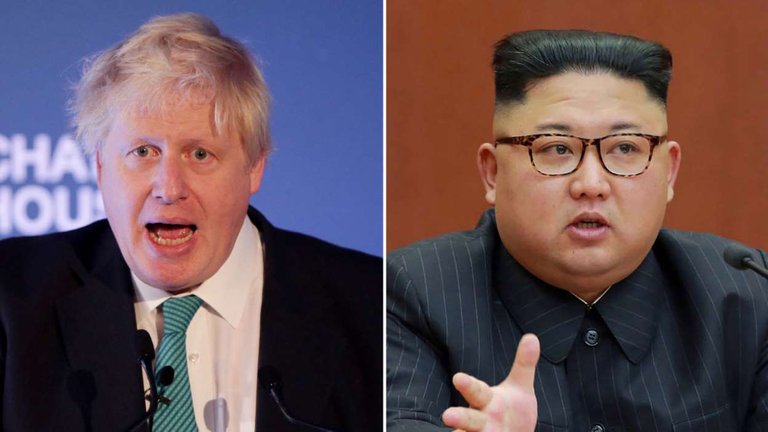
The Foreign Secretary has called on North Korea's leader Kim Jong Un to negotiate over his nuclear ambitions but warned the rogue state a pre-emptive strike remains a possibility.
Boris Johnson said he backed a series of "commitments" made by South Korea and the US secretary of state's efforts to talk, making it clear the UK did not seek to bring about regime change.
He told the Chatham House conference in London: "These are the commitments that we hope will encourage Kim Jong Un to halt his nuclear development programme, to come to the negotiating table and thereby to take the only path that can guarantee the security of the region as a whole."
The Trump administration's top diplomat, Rex Tillerson, has been attempting to negotiate with Pyongyang to stop it carrying out tests of long-range missiles and nuclear devices.
Mr Johnson said "no one... in the UK or even around the world wants any kind of military solution" to North Korea's nuclear threat.
However, he said Mr Kim "and the world" should understand that in the face of a "regime led by a man who not only threatens to reduce New York to ashes, but who stands of the verge of acquiring the power to make good on his threat", the US President would "have an absolute duty to keep safe not only the American people but all those who have sheltered under the American nuclear umbrella".
In a later question and answer session, Mr Johnson responded to a question from Sky News' Alistair Bunkall on whether he could foresee any circumstances in which the UK would support a pre-emptive strike by the US by saying: "It must remain on the table.
COMPLETE COVERAGE: North Korea vs US
"There is a spectrum of things that could be done. It is the duty of any President of the United States, given the threat that his or her country could face, to at least explore those military options."
Mr Johnson had used an earlier part of his speech to extol the success of the Iran treaty, called the joint comprehensive plan of action, which he said stood to avert a "perilous and debilitating arms race".
He went on to add: "In short, Pyongyang faces the same dilemma as Tehran. By continuing to develop nuclear weapons Kim risks provoking a reaction in the region that is at once defensive and competitive, that reduces not increases his security (and) the survival chances of his regime...
"Until he understands that, I feel we have no choice but to step up the pressure on Pyongyang."
Mr Johnson said, amid the "urgent" need for China to "address" the problem of North Korea, there is "unprecedented discussion between China and the US on how to handle this crisis", a closeness he said boded well for the future.
"Whatever we think of the regime and its behaviour, the ruling elite in North Korea is in the end composed of human beings. We must find ways of getting through to them but at the same time, not just toughening the sanctions regime, enforcing those in place.
"It won't be easy, but the costs of failure could be catastrophic."
In stating why, he underlined why he felt the UK's nuclear arsenal remained necessary, harking back to Britain's role in negotiating the Nuclear Non-Proliferation Treaty (NPT) in the late 1960s.
"To wield a nuclear deterrent as this country does, is neither easy nor cheap... We are one of the handful specifically recognised by the NPT to possess such dreadful weapons... and by holding that stockpile, we play our part in deterring the ambitions of rogue states."
I need peace over all world :-(